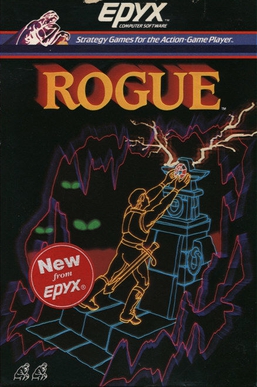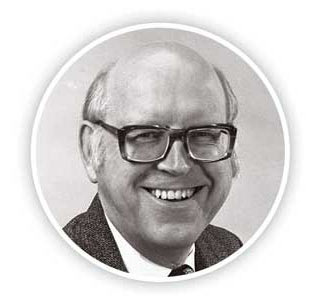Related Research Articles

Carnegie Mellon University (CMU) is a private research university in Pittsburgh, Pennsylvania. The institution was originally established in 1900 by Andrew Carnegie as the Carnegie Technical Schools. In 1912, it became the Carnegie Institute of Technology and began granting four-year degrees. In 1967, it became the current-day Carnegie Mellon University through its merger with the Mellon Institute of Industrial Research, founded in 1913 by Andrew Mellon and Richard B. Mellon and formerly a part of the University of Pittsburgh.

Rogue is a dungeon crawling video game by Michael Toy and Glenn Wichman with later contributions by Ken Arnold. Rogue was originally developed around 1980 for Unix-based minicomputer systems as a freely distributed executable. It was later included in the official Berkeley Software Distribution 4.2 operating system (4.2BSD). Commercial ports of the game for a range of personal computers were made by Toy, Wichman, and Jon Lane under the company A.I. Design and financially supported by the Epyx software publishers. Additional ports to modern systems have been made since by other parties using the game's now-open source code.

The Heinz College of Information Systems and Public Policy, also known as Heinz College, is the public policy and information college of Carnegie Mellon University in Pittsburgh, Pennsylvania. It consists of the School of Information Systems and Management and the School of Public Policy and Management. The college is named after CMU's former instructor and the later U.S. Senator John Heinz from Pennsylvania.

The School of Computer Science (SCS) at Carnegie Mellon University in Pittsburgh, Pennsylvania, US is a school for computer science established in 1988. It has been consistently ranked among the top computer science programs over the decades. As of 2022 U.S. News & World Report ranks the graduate program as tied for second with Stanford University and University of California, Berkeley. It is ranked second in the United States on Computer Science Open Rankings, which combines scores from multiple independent rankings.

Allen Newell was an American researcher in computer science and cognitive psychology at the RAND Corporation and at Carnegie Mellon University’s School of Computer Science, Tepper School of Business, and Department of Psychology. He contributed to the Information Processing Language (1956) and two of the earliest AI programs, the Logic Theory Machine (1956) and the General Problem Solver (1957). He was awarded the ACM's A.M. Turing Award along with Herbert A. Simon in 1975 for their basic contributions to artificial intelligence and the psychology of human cognition.
A computer poker player is a computer program designed to play the game of poker, against human opponents or other computer opponents. It is commonly referred to as pokerbot or just simply bot. As of 2019, computers can beat any human player in poker.
The Andrew Project was a distributed computing environment developed at Carnegie Mellon University beginning in 1982. It was an ambitious project for its time and resulted in an unprecedentedly vast and accessible university computing infrastructure. The project was named after Andrew Carnegie and Andrew Mellon, the founders of the institutions that eventually became Carnegie Mellon University.

Andrew Wilson Appel is the Eugene Higgins Professor of computer science at Princeton University. He is especially well-known because of his compiler books, the Modern Compiler Implementation in ML (ISBN 0-521-58274-1) series, as well as Compiling With Continuations (ISBN 0-521-41695-7). He is also a major contributor to the Standard ML of New Jersey compiler, along with David MacQueen, John H. Reppy, Matthias Blume and others and one of the authors of Rog-O-Matic.
The Carnegie Mellon University Usable Privacy and Security Laboratory (CUPS) was established in the Spring of 2004 to bring together Carnegie Mellon University researchers working on a diverse set of projects related to understanding and improving the usability of privacy and security software and systems. The privacy and security research community has become increasingly aware that usability problems severely impact the effectiveness of mechanisms designed to provide security and privacy in software systems. Indeed, one of the four grand research challenges in information security and assurance identified by the Computing Research Association in 2003 is: "Give end-users security controls they can understand and privacy they can control for the dynamic, pervasive computing environments of the future." This is the challenge that CUPS strives to address. CUPS is affiliated with Carnegie Mellon CyLab and has members from the Engineering and Public Policy Department, the School of Computer Science, the Electrical and Computer Engineering Department, the Heinz College, and the Department of Social and Decision Sciences. It is directed by Lorrie Cranor
The Verbot (Verbal-Robot) was a popular chatterbot program and artificial intelligence software development kit (SDK) for Windows and the web.

Randal E. Bryant is an American computer scientist and academic noted for his research on formally verifying digital hardware and software. Bryant has been a faculty member at Carnegie Mellon University since 1984. He served as the Dean of the School of Computer Science (SCS) at Carnegie Mellon from 2004 to 2014. Dr. Bryant retired and became a Founders University Professor Emeritus on June 30th, 2020.
Michael Loren "Fuzzy" Mauldin is a retired computer scientist and the inventor of the Lycos web search engine.
Ekaterini Panagiotou Sycara is a Greek computer scientist. She is an Edward Fredkin Research Professor of Robotics in the Robotics Institute, School of Computer Science at Carnegie Mellon University internationally known for her research in artificial intelligence, particularly in the fields of negotiation, autonomous agents and multi-agent systems. She directs the Advanced Agent-Robotics Technology Lab at Robotics Institute, Carnegie Mellon University. She also serves as academic advisor for PhD students at both Robotics Institute and Tepper School of Business.
Frank Ritter is a professor in the College of Information Sciences and Technology, professor in the Department of Psychology, and professor in the Department of Computer Science and Engineering at Penn State University. Before coming to Penn State, he was a lecturer in the Department of Psychology at the University of Nottingham, and a visiting distinguished professor in the Psychology Department at Chemnitz University of Technology (Germany).

Pradeep Kumar Khosla is an Indian-American computer scientist and university administrator.
Bonnie E. John is an American cognitive psychologist who studies human–computer interaction, predictive human performance modeling, and the relationship between usability and software architecture. She was a founding member of the Human-Computer Interaction Institute at Carnegie Mellon University, a research staff member at IBM's Thomas J. Watson Research Center, and the director of computation and innovation at The Cooper Union. She is currently a UX designer at Bloomberg L.P.

Kathleen M. Carley is an American computational social scientist specializing in dynamic network analysis. She is a professor in the School of Computer Science in the Carnegie Mellon Institute for Software Research at Carnegie Mellon University and also holds appointments in the Tepper School of Business, the Heinz College, the Department of Engineering and Public Policy, and the Department of Social and Decision Sciences.
Cleotilde Gonzalez is a Research Professor of Decision Sciences in the Social and Decision Sciences Department. She is also the founding director of the Dynamic decision-making laboratory at Carnegie Mellon University. Gonzalez is also affiliated with the Security and Privacy Institute (CyLab), the Center for Behavioral Decision Research (CBDR), the Human Computer Interaction Institute, the Center for Cognitive Brain Imaging, and the Center for Neural Basis of Cognition.
References
- Mauldin M.; Jacobson G.; Appel A.; Hamey L. (16 May 1984). "ROG-O-MATIC: A Belligerent Expert System". Carnegie Mellon University Department of Computer Science. Retrieved 2007-10-02.